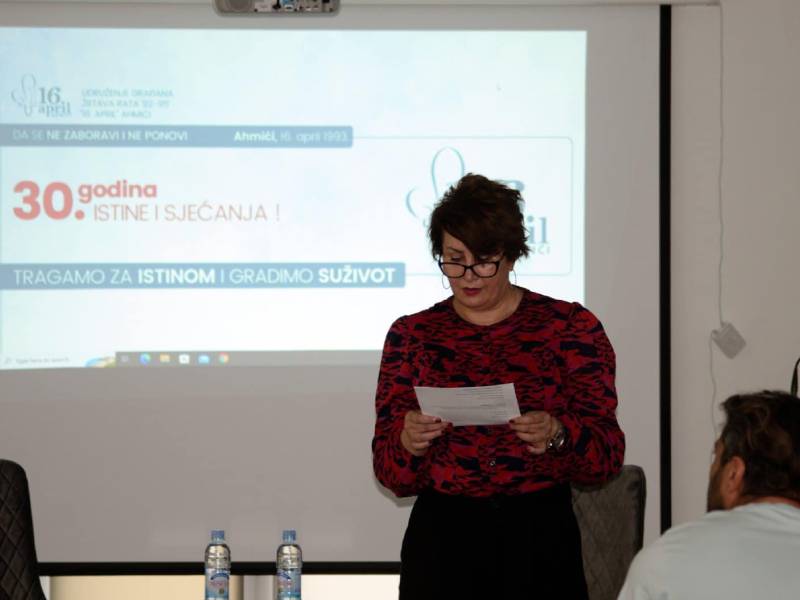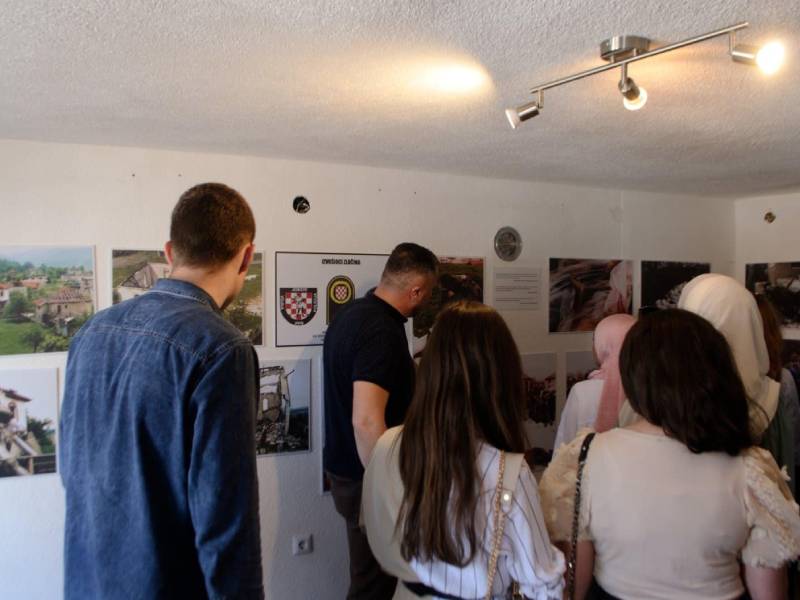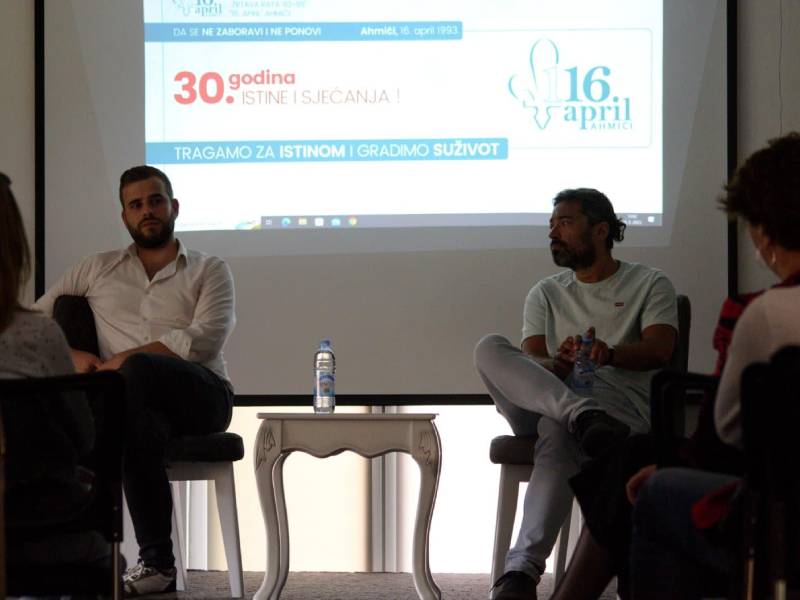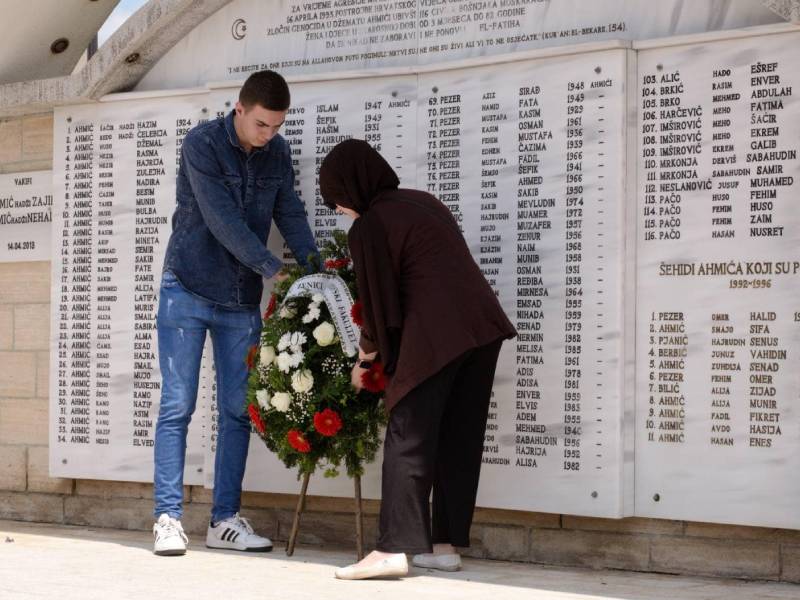The TPO Sarajevo Foundation, within the framework of the ETOS Initiative project, in cooperation with the Faculty of Philosophy in Zenica, on May 29, 2023, organized visits to Ahmići, the “Donja džamija” memorial, and Vitez, the “Osmica” memorial.
Students of the Faculty of Philosophy in Zenica attended interdisciplinary classes on the culture of remembrance and dealing with the wartime past. The lectures were held by Dragan Markovina PhD, historian and Nikola Vučić, journalist of N1 television and peace activist. Dragan Markovina PhD spoke about where we are at the moment when it comes to the Culture of Remembrance and dealing with the facts that happened during the past war. With his presentation “Has the concept of dealing with the past succeeded?” he opened up a series of questions about remembrance, coping and the capacity of Bosnian society, but also of individuals to speak about the truth, war crimes, as well as the memorialization of war conflicts. The main question of the text is whether the concept of dealing with the past has succeeded, in a situation where even today, in 2023, twenty-eight years after the end of the war, we have quarreling cultures of memory, societies metaphorically buried in trenches and no substantial agreement on a common future. This is so evident in the idea of building the HVO Museum at the Mostar Heliodrom, together with the discussion about it, as well as the reluctance to discuss the events in the Museum of the Battle of the Neretva in Jablanica, as well as the political processes necessary to adequately mark the place of suffering in Kazani and to redefine the inscriptions on the memorial plaques in Sarajevo as well as the institutional glorification of war criminals in the Republika Srpska. Markovina emphasizes that the current concept is aimed at smaller groups that are ready to speak and face war crimes, but that it is not a systemic or social project. In such a situation, it is worth asking about alternative ways of dealing with the past and redefining the whole concept. Nikola Vučić spoke about childhood and growing up in the atmosphere of the (post) concentration camp experience, transformed into an unusual story and unusual understanding of the concentration camp trauma and the entire conflict between the HVO and the ARBiH. Using autobiographical elements of growing up with his father, who spent 9 months in captivity during the war, journalist Nikola Vučić describes how an indirect traumatic experience in his case became a platform for confronting the past and peaceful social engagement. Unlike the political abuses that have enslaved a multitude of “personal destinies”, this testimony based on a true story attempts to depict the experience of a redesign of trauma into inspiration and activism.









